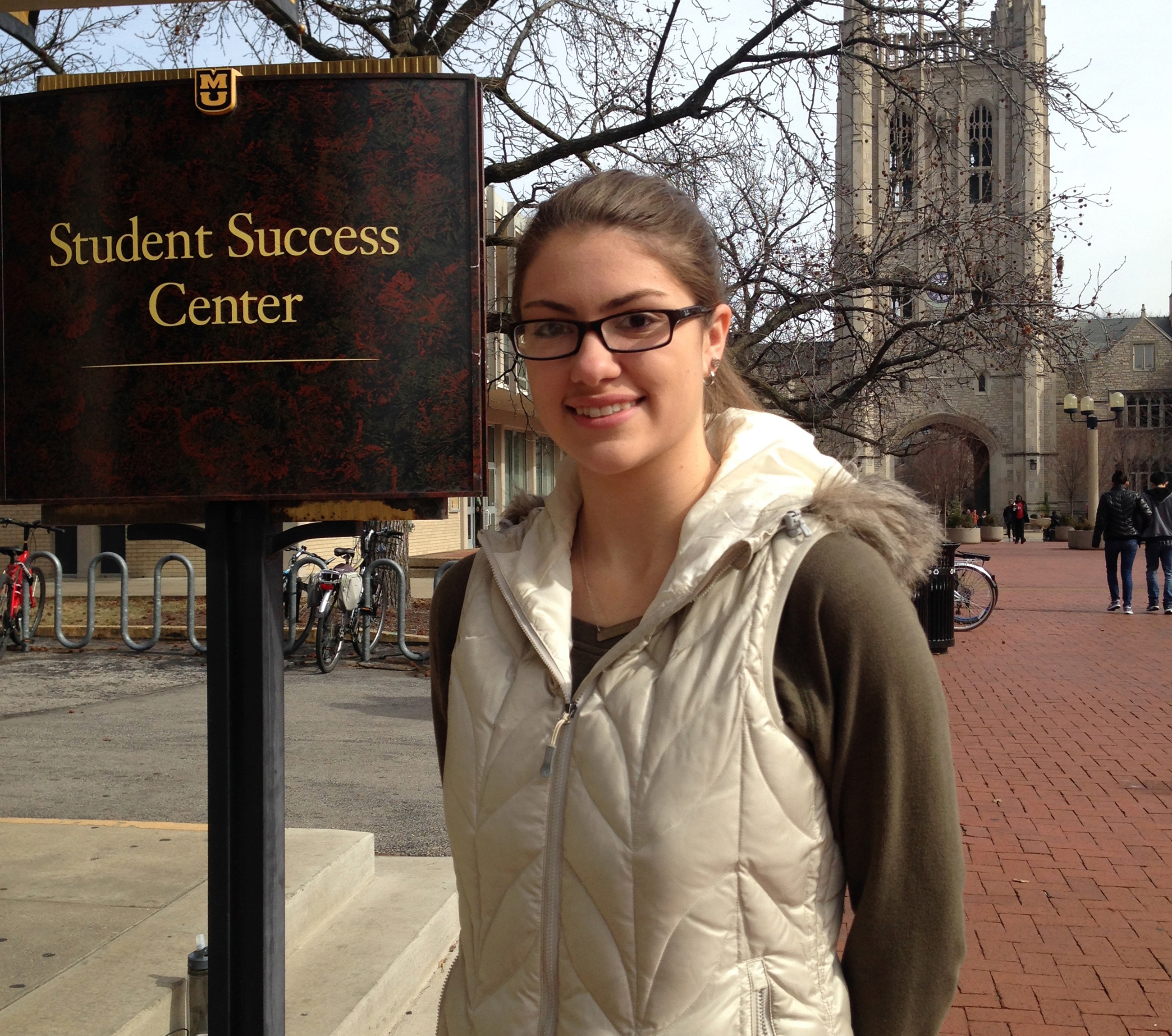Published on March 13, 2017

Most kids have idols—people they look up to or aspire to be. For junior Sarah Marcum, that was astronomer and author Carl Sagan.
Marcum grew up watching all of Sagan’s PBS series on astronomy, enchanted with the scientific concepts and visuals. When the series ended, she took to Sagan’s books.
“I read everything he wrote,” Marcum says. “He was my first introduction into any type of science writing.”
The two somewhat incompatible passions of science and writing have carried through to Marcum’s college years at MU, where she combines them in her daily studies of physics, biology and math, her English minor and job as a tutor at the MU Writing Center, which is located in the Student Success Center.
Originally a biology major, Marcum chose Mizzou after being accepted into BIOME, a biology intensive orientation experience that allowed her to come to school a week early and participate in specialized pre-class training with biology professors.
She enjoyed biology, but after a few semesters of classes, her confidence in her math skills had increased. Having grown up with a particular affinity for astrophysics, Marcum decided to return to those childhood passions and changed her major to physics.
In the fall semester of her sophomore year, Marcum enrolled in a class called the Theory and Practice of Tutoring Writing. Science and writing do not naturally seem to go together, Marcum says, but the two do intertwine. Science relates to all people, so it is necessary to be able to explain it to all people, she says.
“The skill of being able to explain something to someone else is really important in science,” she says.
She attributes her enduring interests in science writing to Sagan. “I was fascinated with how he presented concepts in science in an understandable, beautiful way,” Marcum says.
Given these long-held interests, she figured the Theory of Practice and Tutoring Writing—a required class to become a tutor at MU’s Writing Center—was a good opportunity to learn writing and teaching strategies. She did not actually expect an offer to become a tutor, as only so many are available each year.
When she got the tutoring job, she was excited to take her passions for reading and writing to a new level. Marcum particularly enjoys the challenge of helping students brainstorm and relate their interests into a cohesive, academic paper.
“I have students who come in and are very interested in incorporating their majors into every paper they write,” she says, “so it’s a good challenge to find connections between art and history and to integrate other interests in writing.”
After graduation, Marcum plans to continue using her passions of science and writing by attending graduate school and conducting physics research. She is interested in working in a science communication field after school.
Until then, Marcum will continue indulging her interests through her job at the Writing Center and by enroll in more writing classes, which she calls her “fun” classes.